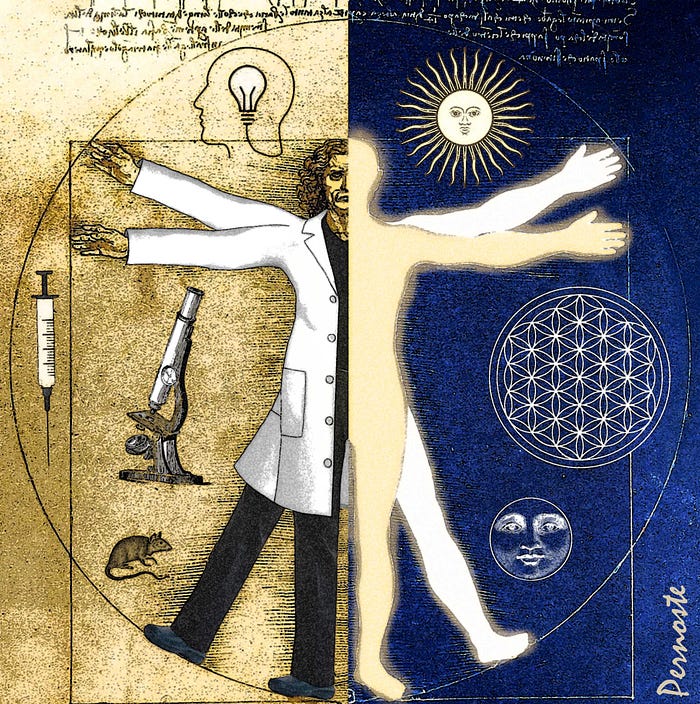Exploring the Intersection of Science, Art, and Spirituality
Written on
Chapter 1: The Journey into Science and Creativity
Have you ever wondered what it’s like to be a scientist, especially if you’re not one yourself? Reflecting on my youth, I recall how the allure of science captivated me. The thrill of discovery, meticulous research, and problem-solving felt exhilarating. I envisioned a world filled with brilliant scientists working objectively to solve complex issues, from curing diseases to advancing space exploration.
Yet, it’s also likely that some of you grew up with a more dramatic interpretation of science, perhaps influenced by tales of mad scientists like Victor Frankenstein. In my youthful imagination, I aspired to be like Spock from Star Trek—logical, rational, and emotionally detached. I yearned to uncover new treatments, inventions, or ideas. However, reality often diverges from expectation, as human interactions introduce egos and politics into the scientific landscape. Nonetheless, I prefer to focus on the dedicated, intelligent individuals committed to research for the right reasons, which ultimately led to my own success.

Section 1.1: The Scientific Method Unraveled
Despite our advances, much of biology and physiology remains shrouded in mystery. The more we uncover, the more we realize how intricate and complex these systems are. The "Scientific Method" stands as our primary tool for exploring this obscured realm. It emphasizes an empirical approach, foundational to scientific inquiry since the 17th century. Rigorous observation and skepticism are vital components of hypothesis-driven research.
Through iterative testing, scientists design studies, collect data, analyze results, and refine their hypotheses. This process can feel like probing a mysterious black box, yielding insights incrementally. Each scientific endeavor often provides a clearer understanding, though we must acknowledge that science, like all human endeavors, can be wrong just as often as it is right. What we once accepted as fact, such as the sun revolving around the Earth, has evolved significantly over time.
Section 1.2: Embracing Creativity and Spirituality
My perspective on biological research diverges from many of my peers. I believe that creativity and spirituality are essential components of my scientific journey. While technological advancements often dominate discussions around research, creativity is frequently overlooked. Spirituality? That topic is often entirely absent.
Growing up, I was fortunate to possess a curious mind and talents in music, writing, and mathematics. My childhood, devoid of modern technology, allowed me to explore these interests fully. Despite being raised in a family of atheists, I found myself a devout believer in God while also questioning religious dogmas. From a young age, I sensed things beyond ordinary understanding, a phenomenon I later recognized as claircognizance.